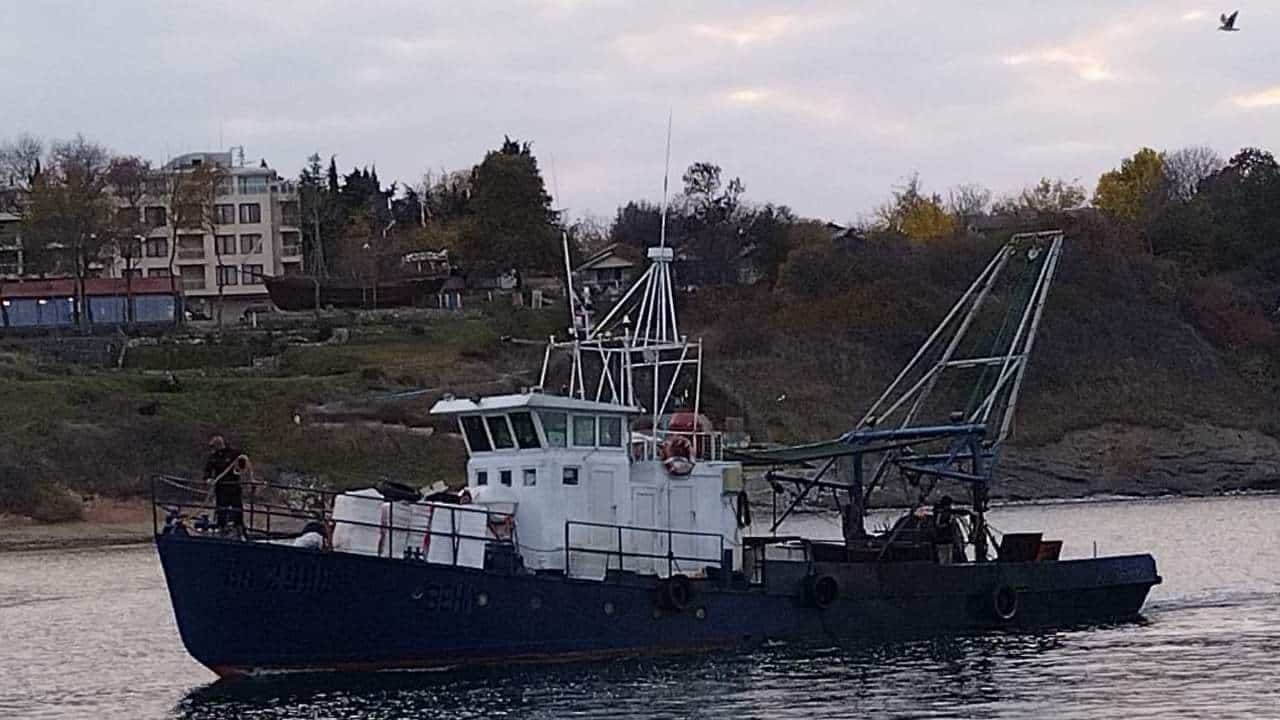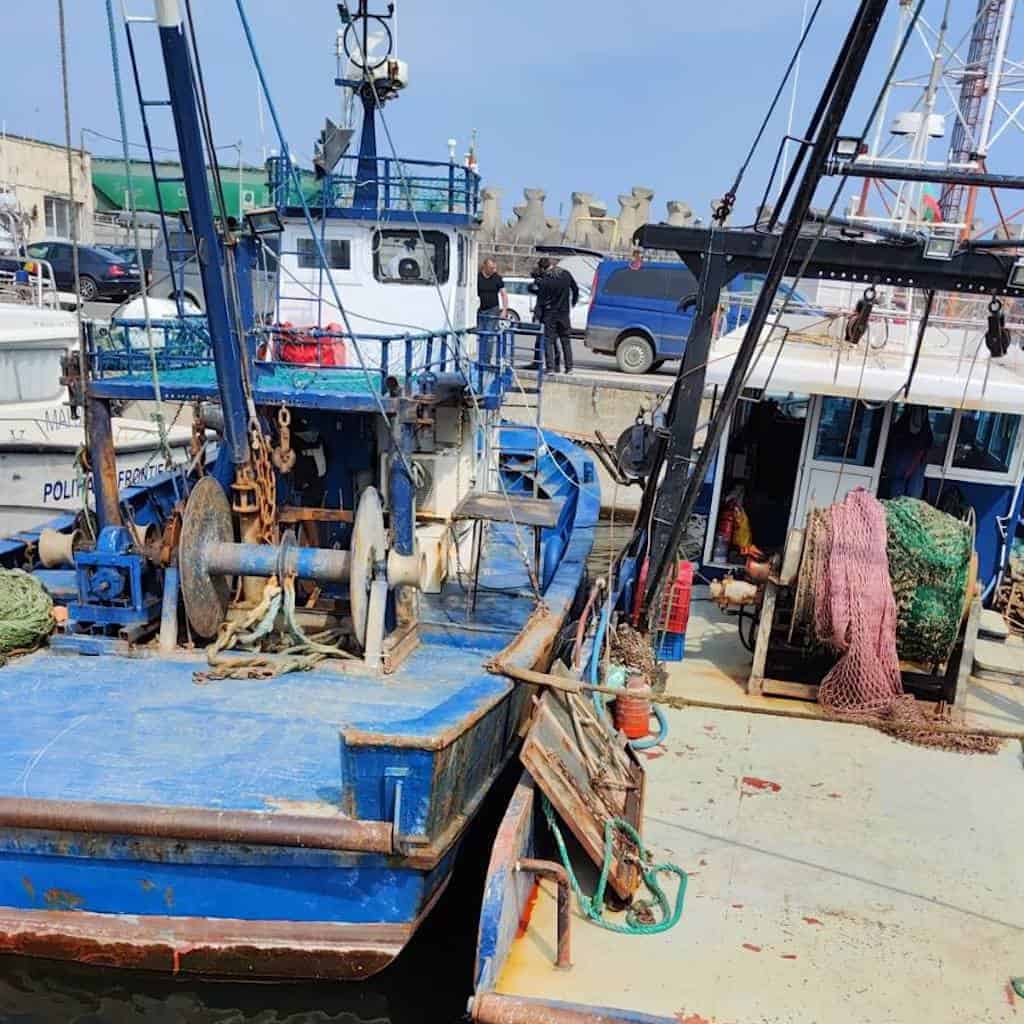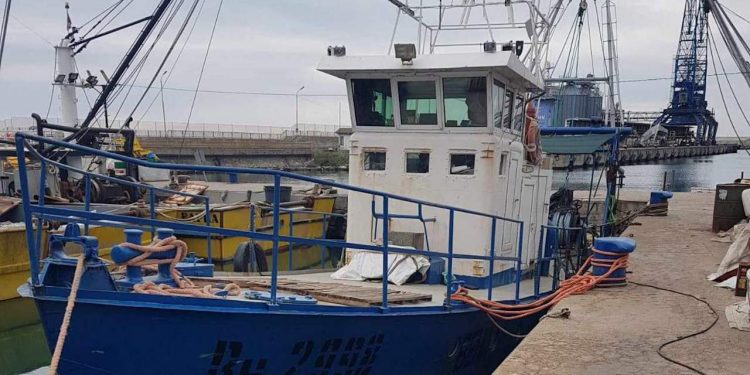The owners of three trawlers from Bulgaria that have been detained in Romania are taking their grievance to Brussels in an effort to get the situation resolved, as there seems to be no inclination on the part of the Romanian authorities to resolve the impasse – as Bulgarian fishermen accuse Romania of failing to abide by European law.

The three trawlers were arrested in March 2023 while fishing 55 nautical miles off the port of Constanta, on the justification that they were fishing with trawl gear, which the Romanian authorities state is an unauthorised fishing method. Each vessel had around 500kg of turbot and dogfish on board.
According to the Romanian authorities, a prohibition on catching dogfish was introduced in 2013, with both the European Commission and the Black Sea Advisory Council consulted. ‘This argument was presented in the indictment documents from the Romanian Prosecutor’s Office, based on minutes from sessions of the Black Sea Advisory Council. This is new information for the Bulgarian fishery sector and it needs to receive official confirmation,’ said Emil Milev, president of the Black Sea Sunrise Fisheries Association, in his letter to Commissioner Virginijus Sinkevičius and DG Mare director Charlina Vitcheva.
Black Sea Sunrise represents 53 fishing vessels over 12 metres, fishing in the Black Sea, and Emil Milev points out that sixteen years on from EU accession, there is still a lack of clarity for fishermen in Bulgaria and Romania concerning which national and community rules apply in the EU part of the Black Sea.
‘The ministries of agriculture of the two member states still have different opinions regarding these issues,’ he said.

‘While the European Commission continues being passive in its activity in the Black Sea and, apparently, in all these years has not succeeded in providing and guaranteeing the uniform application of EU law in an area of exclusive competence of the EU. This leads to lack of clarity and total unpredictability for the fishing sector.’
He commented that the European Commission owes the fishermen of the Black Sea some explanations.
‘Bulgarian fishing vessels are entitled to equal and free access to the waters under the sovereignty and jurisdiction of Romania in the Black Sea, outside 12 miles. Such access is equally provided to Romanian vessels to the Bulgarian waters,’ he said and commented that back in 2011, Romania arrested a Bulgarian fishing vessel on the grounds that failed to respect the principle of equal and free access to the waters and the resources of the EU in the Black Sea,’ he said, adding that this vessel was detained for a full year, and a case brought before a Romanian court in 2013 denied the existence of the right of equal access and resulted in a conviction for Bulgarian skipper Hristo Spasov.
‘This understandably led to concern within the whole Bulgarian fishing fleet, which did not take advantage of its right of equal access to fish in Romanian waters for at least the subsequent three years,’ he said.

A ten-year process led to a judgement at the European Court of Human Rights in late 2022, which found against Romania, in which the court deemed Romania to have failed to abide by EU law, in that it failed to recognise the right of equal access to the waters and the resources of the EU in the Black Sea.
‘Fishermen in Bulgaria waited ten years for that decision – and issues related to the law applying to fishing Romanian waters are still unresolved today,’ Black Sea Sunrise states.
The three vessels detained earlier this year have been charged with fishing during a closure period, decided solely by the Romanian aurthorities, and fishing with trawl gear that Romania considers unauthorised gear.
Emil Milev and Black Sea Sunrise have a host of questions for the European Commission to answer, not least whether these closed periods, catch areas and gear requirements are measures decided at European level, and whether or not there has been consultation on prohibiting fishing for dogfish.
‘If yes, please provide us with all necessary documents, including the reasoning for the presence of a serious threat to marine resources or for the ecosystem,’ he said.
The Bulgarian association also wants to know if seizure of a vessel can be justified in the case of actions that do not appear to be seen as serious infringements under the CFP, and what criteria are used to determine proportionality of member states’ regulatory bodies.
‘Does the detention of a fishing vessel, as a restrictive measure, for more than nine months, on the grounds of the use of an unauthorised gear under a state’s national law constitute a breach of EU law, and does this infringe the rights of fishermen to exercise their profession?’ Emil Milev asks.
‘We are looking forward to prompt reaction and answers to the these issues. The circumstances we are so far aware of give every reason to believe that the sole purpose of the Romanian authorities is not to allow real application of the principle of equal and free access to the EU waters in the Black Sea. We ask for an official meeting with the Director of the Directorate-General for Maritime Affairs and Fisheries together with members of her team, to present the issues of the fishery in the EU waters of the Black Sea and to receive adequate answers.’









